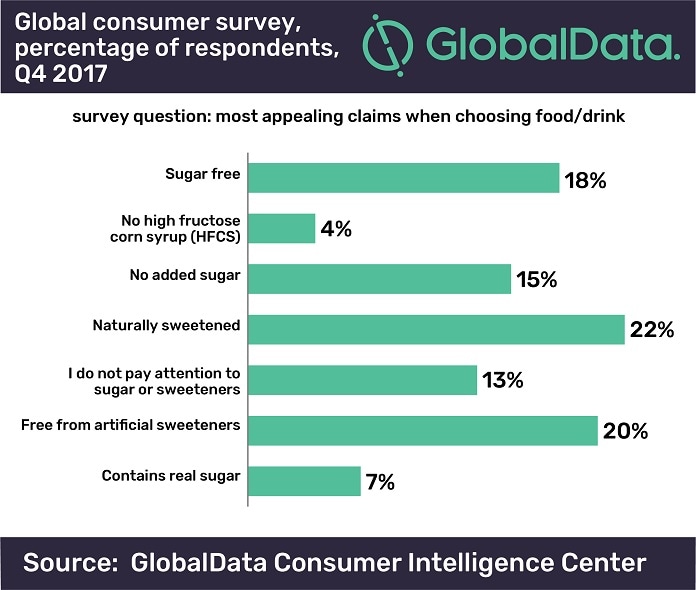Widespread media coverage of the high and growing prevalence of overweight or obese individuals globally has heightened awareness of weight management. As a result, more than one fifth of consumers trying to lose weight are concerned about related diseases and conditions such as high or low blood pressure, according to GlobalData, a leading data and analytics company.

Global Consumer survey
GlobalData’s latest report, ‘TrendSights Analysis: Weight Management’, reveals that the two main drivers of weight management are an image-conscious visual culture that is fueling the desire to have an attractive body shape, and health concerns as more consumers become aware of the negative health implications of obesity and being overweight.
Nidhi Chauhan, Senior Consumer Analyst at GlobalData, comments:
Consumers generally believe in the notion of an 'ideal weight', and they aspire to attain that weight using different methods of lifestyle management, including exercise. GlobalData's research confirms that around 88% of consumers exercise to look or feel good."
Key drivers of weight management
Ensuring better health in later life makes consumers more conscious of their current physical condition and personal image, which is associated with success, opportunity and wellbeing. People of all ages are more proactively addressing their health by curbing excessive indulgences (e.g. alcohol and smoking), improving their diets and undertaking physical activity.
Consumers are also seeking products and services that help them reduce the risk factors for disease and manage or improve health conditions that they already suffer from. Digital lifestyles are enabling consumers to more confidently embrace informational tools and make more health-driven choices.
Chauhan added: "With an increasing consumer focus on health and growing obesity among young children in particular, brands can play a vital role in creating more healthy choices for consumers by exploring the use of healthier ingredients while at the same time, maintaining a product's taste profile."
Ingredient innovation
Consumers that are trying to lose weight are seeking alternatives to traditional carbohydrates and sugar. GlobalData’s Q4 2017 global consumer survey reveals that 22% of respondents found "naturally sweetened" and 20% found "free from artificial sweeteners" the most appealing claims when choosing a food or drink product. This is translating into more consumer demand for fresh ingredients and natural food and drink products.
Chauhan continues: "Brands should focus on using natural ingredients as much as possible, as they are viewed more favorably and appeal more to consumers. However these ingredients must deliver the same taste profile because consumers will not sacrifice taste for a healthier option."
Brand innovation
There are a number of implications for brand innovation here. Brands should align with the demand for more holistic 'back to basic' approaches to weight loss by using clean labels, as well as incorporating high quality ingredients with a balanced combination of food groups in product categories such as ready meals and snacks.
New product formulation should also utilize satiety-enhancing, easily recognized ingredients such as oats to provide "fuller for longer" options so that consumers can make informed choices.
It is important when considering the weight management trend that fast moving consumer goods (FMCG) brands are continually looking for new ways to stimulate demand and encourage product trial with a movement away from traditional artificial sweeteners and towards 'low-calorie' or 'naturally sweetened' alternatives, which are viewed more favorably by consumers."
Nidhi Chauhan, Senior Consumer Analyst at GlobalData